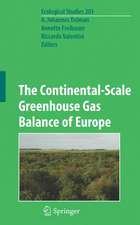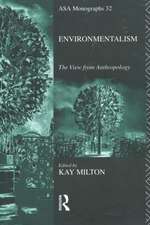Challenging Legitimacy at the Precipice of Energy Calamity
Autor Debra J. Davidson, Mike Gismondien Limba Engleză Paperback – oct 2014
| Toate formatele și edițiile | Preț | Express |
|---|---|---|
| Paperback (1) | 638.11 lei 6-8 săpt. | |
| Springer – oct 2014 | 638.11 lei 6-8 săpt. | |
| Hardback (1) | 641.71 lei 6-8 săpt. | |
| Springer – 31 aug 2011 | 641.71 lei 6-8 săpt. |
Preț: 638.11 lei
Preț vechi: 750.72 lei
-15% Nou
Puncte Express: 957
Preț estimativ în valută:
122.12€ • 132.60$ • 102.58£
122.12€ • 132.60$ • 102.58£
Carte tipărită la comandă
Livrare economică 22 aprilie-06 mai
Preluare comenzi: 021 569.72.76
Specificații
ISBN-13: 9781493901043
ISBN-10: 1493901044
Pagini: 248
Ilustrații: XV, 232 p.
Dimensiuni: 155 x 235 x 13 mm
Greutate: 0.35 kg
Ediția:2011
Editura: Springer
Colecția Springer
Locul publicării:New York, NY, United States
ISBN-10: 1493901044
Pagini: 248
Ilustrații: XV, 232 p.
Dimensiuni: 155 x 235 x 13 mm
Greutate: 0.35 kg
Ediția:2011
Editura: Springer
Colecția Springer
Locul publicării:New York, NY, United States
Public țintă
Professional/practitionerCuprins
Look Who's Talking.- Observing Global Flows.- Visualizing the Tar Sands Through Time.- Capital, Labour, and the State.- Ecological Disruption.- Energy Matters.- Lessons from the Study.- A View from the Future.- Index.
Textul de pe ultima copertă
Two intersecting moments of the Twenty-first Century define our politics, economies, and future prospects for civilization: the mounting evidence for global climate change, now unequivocally attributed to socio-economic activities, and its de-stabilizing effects on our biosphere, combined with the end of easy oil and the easy wealth it generates. On the energy question, non-conventional fossil fuels have been promoted by political elites as the next most attractive development option. The development of nonconventional fuels, however, does nothing to alleviate either climate change or the falling rate of energy supply, and generates multiple social and environmental consequences. The largest endeavour marking this historic nexus—indeed the largest industrial project in history, is the extraction and processing of the Athabasca tar sands in Alberta, Canada. The social, environmental, and most importantly political outcomes of this grand experiment will reverberate throughout the global polity, and either encourage or caution against increasing our dependence on such non-conventional fuels and assuming the multiple costs such dependence will entail. Planning for reflexive societal change requires that we first ask how such giga-projects are legitimated, and who is challenging this legitimacy? In this book we trace how language and visual representations are used to reinforce or challenge the legitimacy of development of the Athabasca tar sands, and draw on our insights to contemplate likely energy and climate futures.
Caracteristici
Looks at how society navigates crucial historic moments Focuses on the Athabasca tar sands and the high viscosity tar that has been deposited over several millennia The potential for reflexive social change can best be evaluated through critical consideration of why current social structures are sustained Includes supplementary material: sn.pub/extras














